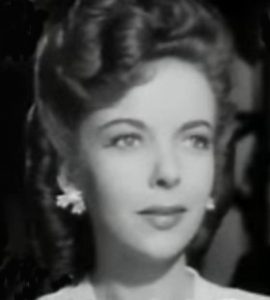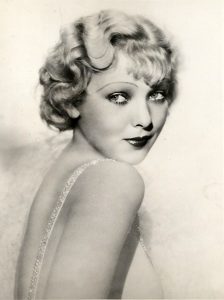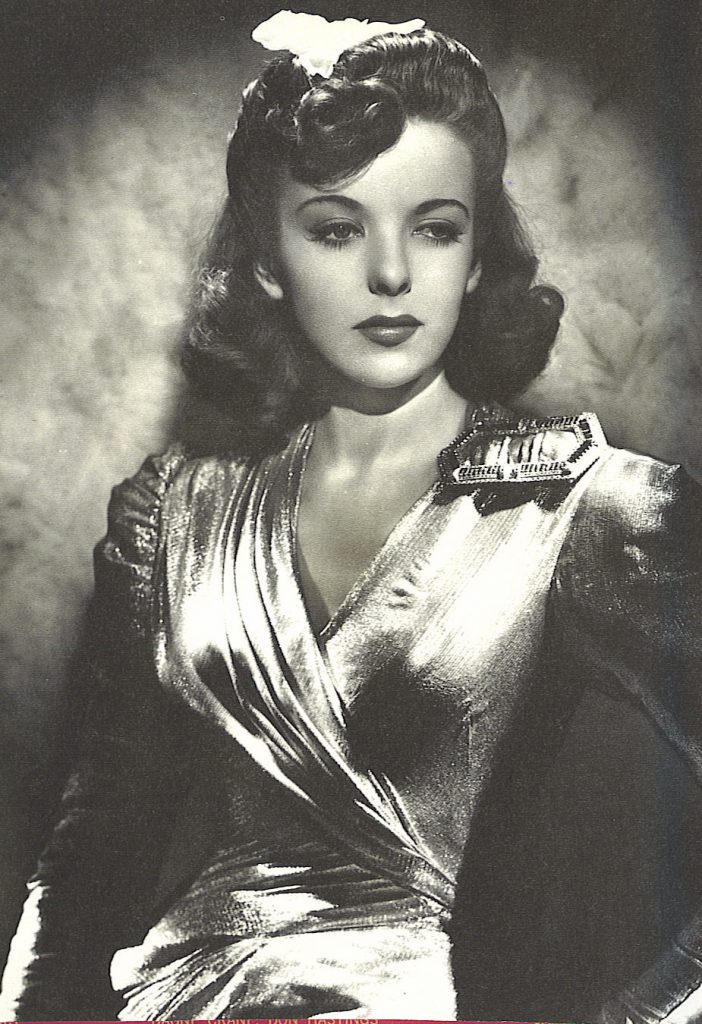
Here, I note with interest, and reflect on, with admiration, the birth one hundred years ago, on this date, of the actress, director, writer and producer, Ida Lupino. This is a piece about someone I like as much as I rate.
It is odd today, to think that she, was only the second woman to ever be able to direct in the Hollywood studio system, the first to be also a working actress. Actor-directors, in that industry, rather than in the theatre then or since, were not common, but women, actress or not, as directors, more or less unheard of then. At the beginning of her later career as a director, she was, for some considerable while, the only member of the Director’s Guild in Hollywood, who was a woman. One out of over a thousand members! But this is not the story of a woman who made it , as the slogan says, in a man’s world, and is notable only for that. It is the appreciation of a considerable and perhaps, overlooked, for many years, career and talent.
Therefore the very point of this piece is to make sure more people have heard of Ida Lupino, and indeed, other women whose work has extended in their profession, or from it, to beyond it, the renaissance woman !
Ida Lupino was born in England in 1918, got into the Royal Academy of Dramatic Art at thirteen, was playing roles in the British film industry by fifteen. After looking for work opportunities in the United States, she had settled there by her early twenties, becoming a US citizen in her thirties.
Lupino is interesting in many respects. Her achievements were built on the elements in her personality that were obviously there from the get go. She had not really particularly wanted to become an actress, she was drawn to writing. It was the fact that she came from generations of theatrical family, of Italian origin, her father was the popular music hall performer Stanley Lupino, her uncle similarly, a well known entertainer, Lupino Lane, that propelled her from a very early age onto the stage, not wanting to break or quell the family tradition and enthusiasm for performing.
Even a look at her earliest work gives more than a glimpse of her qualities, natural, subtle, hers is not the hammy, over the top, or wooden, stiff trait, both, seen at times, in the stage, turned film, actors, of the early talkies. Bleached blonde in her earliest films in the UK, she was, for a while, called “the English Jean Harlow,” though she was nothing like the much loved American star.

It was once in Hollywood and in her early twenties, she revealed the actress that would become the director, later. Again, natural, subtle, but passionate, resolute, too, and versatile. She had the ability or quality, rarer than sometimes felt, of being as convincing playing good as bad. Not very tall, at about five foot three, not overtly beautiful, but definitely attractive, she had character and personality. But she could, then, also be as glamorous and seductive as the rest of them.

It was in an era of girls next door and gangsters molls, she could do both and did, but not so many of either, that you would notice she was an obvious type, rather so very well at each role, because she was gifted actress. She called herself the poor man’s Bette Davis, but hers was a different quality. She was not in any way a poorer actress, she was as good, in comparison she was less unique, fewer mannerisms, less mannered, she was a fine actress who was a star, because she was well known, not a film star or a movie star who was also a fine actress.
Ida Lupino was also political, a strong supporter of the Democratic Party and especially President Kennedy.
But it was as a director that she was a trailblazer and can be seen as literally unique . For a while she was literally the only current member of the Directors Guild who, then, was a woman. Her films, they are several, stand up to scrutiny in the cinema of that time or this. They were small not showy, true to life not phoney. The Hitchhiker or The Bigamist, as good in their genre, as any, better than many. And her very many television programmes which she directed, were often episodes of series dominated by a male oriented style or substance in their stories, for example, westerns and crime dramas.
We expect women to be involved today at every level of every profession. They are in most but as film directors they are underrepresented, power often not sort enough or won if sort, or if not about power, it is too often perhaps about confidence, on the part of a woman seeking that role or the producers, often men, encouraging it. Ida Lupino is a role model for women, for actors, for any of us male or female who seek to expand our talents and a fulfilment of them.
